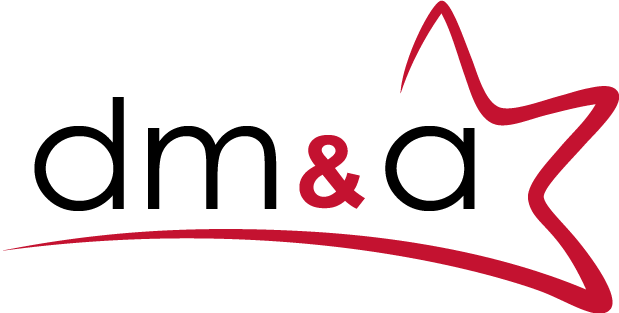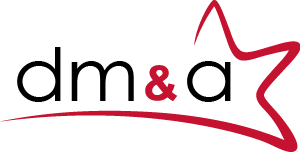CULINARY LEADERSHIP POSITION SUMMARY
The Executive Chef leads and works side-by-side with Nutrition Services management team and staff, delivering outstanding food and customer service, and is recognized as the technical expert and trainer for cooks and kitchen personnel.
The main areas of responsibility for the Executive Chef include, but are not limited to:
- Managing an effective and efficient operation of all food production and supply acquisition for patient, cafeteria and catering services with consistently high quality outcomes and consumer and staff satisfaction.
- Hiring and performance of staff engaged in all hot food production, cold café food production, and supply acquisition.
- Leading the development of improvement plans for all the department services related to food production.
- Overseeing inventory of food and non-food supplies, controlling labor and supply costs, and managing food waste.
- Menu and recipes development.
- Ordering, inventory control, planning and costing menus for catering needs, and managing food costs.
- Recommending and evaluating new food products in collaboration with Nutrition management team.
- Establishing systems that maintain a clean and sanitary kitchen.
- Coordinating implementation of HACCP program to guarantee food safety.
- Ensuring continuous compliance with all regulatory agencies and hospital policies.
- Displaying exceptional team-building skills, strong interpersonal skills, and the ability to interact with patients, visitors, staff, and all levels of management, are essential.
- Serving as a role model of good judgment and manages staff in alignment with the standards the highest level of excellent customer service.
QUALIFICATIONS REQUIRED
Experience:
- 3-5 years of healthcare culinary leadership and catering experience required.
- 3-5 years of experience in managing high volume food production operations.
- Extensive experience in high volume purchasing and storage of supplies.
- Extensive experience in healthcare foodservice, primarily hospitals.
- Knowledge of Hazard Analysis and Critical Control Point (HACCP) Guidelines.
- Knowledge of Food and Drug Administration (FDA) Food Code.
- Preferred: Experience using electronic food service management software.
Education / Certifications:
- Bachelor’s degree in Hospitality Management, Food Service Management, or related field, or Associate Degree in Culinary Arts from an accredited program. –and/or-
- 2 year Associates or Culinary Certificate – or equivalent. Formal training in culinary arts or presently working on culinary certificate and title, evidence of training in supervisory management required.
- American Culinary Federation (ACF) Certification as an Executive Chef preferred.
- National Board Certification – Sanitation & Safety (ServSafe).
SKILLS / COMPETENCIES
- Should have a high level of personal cleanliness and professional appearance.
- Thorough knowledge of all aspects of the culinary arts, to include hot and cold food preparation and presentation.
- Interpersonal skills necessary to conduct appropriate guest relations programs and communicate effectively, both verbally and written with subordinates and other departments and personnel.
- Excellent oral and written communication skills.
- Excellent management and organizations skills.
- Works well when under pressure.
- Analytical skills necessary to coordinate, control, and problem solve in a complex operation.
- Technical skills necessary to develop area procedures related to the specific operation.
- Creative abilities necessary to actively market department services.
- Basic computer skills, including timely email communication, Microsoft Office, menu, report, and document writing.
- Detail and multi-task oriented.
- Able to interpret recipes and menus.
- Able to safely operate all kitchen equipment.
- Advanced knife handling skills.
DETAILED KEY RESPONSIBILITIES / ESSENTIAL FUNCTIONS
- Assists with the development of policies and procedures that ensure compliance with JCAHO, Federal, State, etc. laws, rules, and standards.
- Maintains and completes a variety of records appropriate to the area of assignment, which may include receiving, issuing, production, HACCP, sales, cash control, workload, and patient care records.
- Assists in the development of quality and production standards and goals.
- Determine production schedules and staff requirements necessary to meet established goals and ensure timely delivery of services.
- Maintains performance, patient and employee satisfaction and financial standards.
- Ensures that employees comply with standard procedures and other instructions.
- Continually checks production and makes necessary adjustments in work procedures and work pace to ensure accomplishment of target standards and goals.
- Performs a full range of human resource functions including, interviewing, hiring, evaluation, and discipline.
- Creates menus and recipes to provide quality and variety in all areas of the kitchen operations, including doctor’s dining, catering, café and patient meals.
- Has high knowledge of nutrition values in food and communicates constructively with the Nutritionist in the hospital on daily basis.
- Coordinate planning, budgeting, and purchasing for all the food operations while ensuring efficient operation.
- Analyze recipes to assign prices to menu items, based on food, labor, and overhead costs.
- Demonstrates skill in food preparation, garnishing, plate presentation and service, which are in compliance with all regulatory standards, in accordance with HACCP guidelines.
- Instruct cooks, stewards and other workers in the preparation, cooking, garnishing, for presentation of food and cleaning of the work environment.
- Plan, direct, and supervise the food preparation and cooking activities of multiple kitchens and processes within the hospital kitchen.
- Works very closely with the hygiene and safety department with high knowledge of both.
- Monitor sanitation practices to ensure that employees follow standards and regulations.
- Meet with sales representatives in order to negotiate prices and order supplies.
- Inspect supplies, equipment, and work areas to ensure conformance to established standards.
- Arrange for equipment purchases and repairs.
- Requests/requisitions required supplies and equipment.
- Create positive relationships with patients/families, coworkers, colleagues and with self.
- Communicates effectively with FANS staff and hospital leadership on a regular basis.
- Participates in employee rounding and service recovery as needed.
- Build team morale.
- Requires use of electronic mail, time and attendance software, learning management software and intranet.
- All other duties as assigned.
WORK ENVIRONMENT
Work within a shared office environment, as well as, working in a production environment, interacting with other employees and coordinators to meet deadlines with time constraints. Exposure to temperature and humidity extremes found in kitchen, refrigerator and freezer areas. Exposure to slippery floors associated with water on dishroom floors. Risk of injury from sharp objects, hot surfaces, caustic chemicals and moving heavy parts and equipment. Includes exposure to human body fluids, disease and infection. Requires wearing common protective equipment to adhere to standard precautions, isolation procedures.

